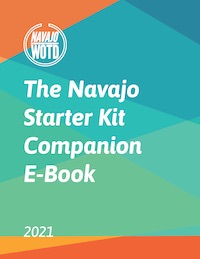aak'ei
fall season or autumn
aah kaye
Also known as aak’ee, this is the Navajo word for the autumn or fall season.
The Navajo winter will begin next month, so the end of the month of November marks the transition to the next season.
In the mid-autumn timeframe (Octoberish, or Gháájí’), the Navajo new year begins. The fall season is also typically the time when creation stories are beginning to be told, although it varies depending on the first snow event.
The fall season is the time when the Navajo Nation hosts its regional fairs, such as the Navajo Nation Fair in Window Rock, AZ, which hosts the Miss Navajo Pageant, among other events. There are fairs for every agency of the reservation, five in total, which are analogous to counties in a state.
